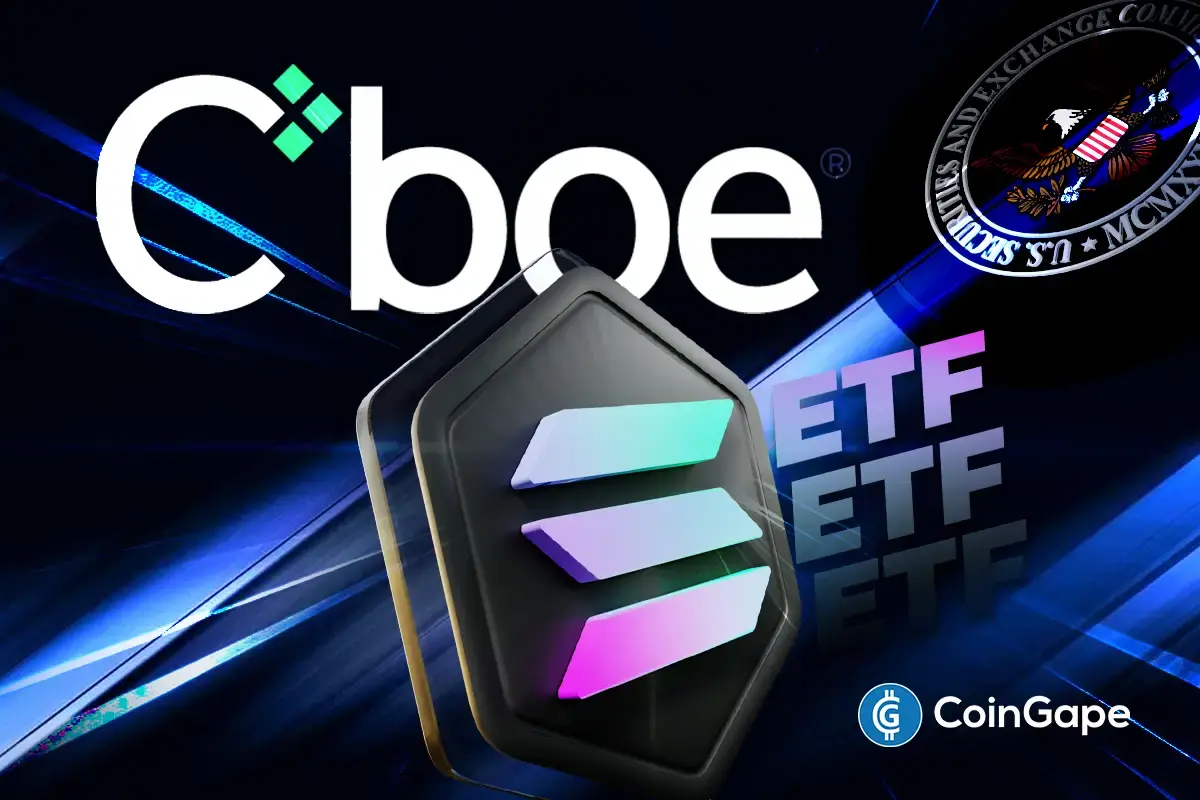Regulation
Celsius Sues Tether To Clawback $2B Bitcoin Lost In ‘Fraudulent’ Transfers

Celsius Network Ltd. has filed a lawsuit against Tether and its affiliated entities. The lawsuit alleges that the USDT issued conducted “fraudulent” and “preferential” transfers of Bitcoin (BTC) amounting to over $2 billion today. The complaint, lodged in federal bankruptcy court, seeks to reclaim the collapsed estate’s lost Bitcoin due to Tether’s actions during a critical period leading up to the firm’s bankruptcy.
Celsius’ Allegations Against Tether
Celsius, a prominent crypto lender, entered into a loan agreement with Tether Limited in 2020. This arrangement allowed the lender to borrow stablecoins, specifically Tether (USDT) and Euro Tether (EURT), at low-interest rates. In return, the crypto lender posted substantial collateral, including Bitcoin, to secure these loans.
At its peak, the firm had borrowed nearly $2 billion in USDT from Tether, backed by tens of thousands of BTC. The lawsuit focuses on actions taken by Tether during the ninety-day period before the crypto lender filed for bankruptcy on July 13, 2022.
According to the complaint, the USDT issuer demanded and received significant amounts of new collateral from the crypto lender. This totaled 15,658.21 Bitcoin, and further secured new borrowings with an additional 2,228.01 BTC. These actions, characterized as “Preferential Top-Up Transfers” and “Preferential Cross-Collateralization Transfers,” are claimed to have unfairly improved Tether’s position at the expense of other creditors.
Preferential Application Transfer & Breach of Contract
On June 13, 2022, Tether issued a final demand for additional collateral. The crypto lender, in accordance with their agreement, had ten hours to respond. However, stablecoin issuer proceeded to apply the entirety of Celsius’ collateral, i.e., 39,542.42 BTC immediately, without granting the contractually stipulated time.
This action, referred to as the “Preferential Application Transfer,” allegedly allowed Tether to cover its exposure. However, the bankrupt crypto lender was “robbed” of its remaining BTC at a low market value.
Moreover, the lawsuit argues that Tether’s breach of the contract’s 10-hour waiting period resulted in a “fire sale” of the now-bankrupt estate’s Bitcoin, with all 39,542.42 BTC applied against Celsius’ outstanding debt. Tether’s valuation of BTC at $816.82 million is significantly less than its current worth of more than $2 billion.
This caused substantial financial damage to thr crypto lender. The court filing dated August 9 states that Tether sold this Bitcoin at an average price of $20,656.88 each, notably below the market closing BTC price of $22,487.39 on that date.
Crypto Lender Demands Clawback
The lawsuit also contends that Tether’s liquidation of the crypto lender’s Bitcoin was commercially unreasonable. In addition, the complaint highlights that established market practices dictate that such a large block of BTC should be sold over a longer period to minimize price impact and secure better pricing.
Hence, the stablecoin issuer’s actions allegedly violated these practices by selling the BTC hastily and at prices lower than the actual market rates. Furthermore, the premature liquidation barred Celsius from withstanding the market crash. It also eliminated the chance for the automatic stay of bankruptcy to intervene.
Hence, the lawsuit seek “recover” the preferential and fraudulent transfers of Bitcoin. In addition, the crypto lender wants to claim damages for Tether’s alleged breach of contract. Thus, the bankrupt estate is demanding that the court order Tether to return the value of the BTC or its equivalent amount in damages.
Disclaimer: The presented content may include the personal opinion of the author and is subject to market condition. Do your market research before investing in cryptocurrencies. The author or the publication does not hold any responsibility for your personal financial loss.
Regulation
US SEC Acknowledges Fidelity’s Filing for Solana ETF

The U.S. Securities and Exchange Commission (SEC) has formally acknowledged the filing for Fidelity’s spot Solana (SOL) Exchange-Traded Fund (ETF).
This marks a key development in the financial industry, as Fidelity seeks to list its Solana ETF on the Cboe BZX Exchange. The acknowledgment comes after Fidelity submitted a proposed rule change, paving the way for the potential approval of the product.
Fidelity’s Spot Solana ETF Proposal
The SEC’s acknowledgment follows Fidelity’s filing to list and trade shares of the Fidelity Solana Fund under the Cboe BZX Exchange. The proposed rule change, initially submitted on March 25, was later amended on April 1, 2025, to clarify certain points and add additional details.
The amended proposal aims to list the Solana ETF under BZX Rule, which pertains to commodity-based trust shares. According to the Cboe BZX Exchange, Fidelity plans to register the shares with the SEC through a registration statement on Form S-1.
Fidelity’s experience with crypto ETFs, having launched the Fidelity Wise Origin Bitcoin Fund (FBTC) and the Fidelity Ethereum Fund (FETH), has prepared it for this new initiative. FBTC has drawn substantial interest, accumulating nearly $17 billion in assets, while FETH currently manages around $975 million.
This Is A Developing News, Please Check Back For More
Disclaimer: The presented content may include the personal opinion of the author and is subject to market condition. Do your market research before investing in cryptocurrencies. The author or the publication does not hold any responsibility for your personal financial loss.
Regulation
US Senate Banking Committee Approves Paul Atkins Nomination For SEC Chair Role

The U.S. Senate Banking Committee has voted to approve Paul Atkins’ nomination for the role of Chair of the Securities and Exchange Commission (SEC). The vote, which took place on Thursday, passed with a narrow margin of 13-11, along party lines.
Paul Atkins, nominated by President Donald Trump, now moves one step closer to taking over the top regulatory position at the US SEC.
Senate Banking Committee Approves Paul Atkins Nomination
Paul Atkins’ nomination for SEC Chair has received approval despite sharp opposition from Democratic members of the Senate Banking Committee. The vote was entirely split, with Republicans supporting Atkins and all Democrats opposing the decision.
This partisan divide highlights the contentious nature of Atkins’ confirmation, which had been under scrutiny for several reasons.
The committee’s approval now clears the path for Atkins to proceed to the full Senate for a final confirmation vote. Given the Republican-controlled Senate, it is widely expected that Atkins will secure the necessary votes to take over the SEC leadership. With Republicans holding a 53-47 majority in the Senate, the confirmation process is anticipated to move forward swiftly.
This Is A Developing News, Please Check Back For More
Disclaimer: The presented content may include the personal opinion of the author and is subject to market condition. Do your market research before investing in cryptocurrencies. The author or the publication does not hold any responsibility for your personal financial loss.
Regulation
Kraken Obtains Restricted Dealer Registration in Canada

Cryptocurrency exchange Kraken has obtained a Restricted Dealer registration in Canada. The registration comes after completing a pre-registration undertaking (PRU) process with Canadian authorities.
The exchange has also announced the appointment of Cynthia Del Pozo as its new General Manager for North America. Del Pozo will oversee Kraken’s growth initiatives in Canada.
Kraken Completes PRU Process In Canada
Kraken’s Restricted Dealer registration marks the completion of a thorough pre-registration undertaking (PRU) process with Canadian regulators. The registration places Kraken under the supervision of the Ontario Securities Commission (OSC). This oversight ensures users have access to secure crypto products within a properly regulated local ecosystem.
According to the Canadian Securities Administrators (CSA), the Restricted Dealer registration is one of eight firm registration types in Canada. This particular classification is used for firms that “do not quite fit under any other category.” It also comes with specific requirements and conditions set by securities regulators.
Kraken’s regulatory achievement comes during a period of change in the Canadian crypto sector. Just months earlier, competitor Gemini exchange announced its departure from the Canadian exchange market by the end of 2024. This was a move that surprised many and raised questions about cryptocurrency regulation clarity in the country.
Kraken Introduces New Canadian GM
Del Pozo has joined Kraken to lead its Canadian operations as the new General Manager for North America. She has nearly 15 years of experience in corporate development, operations, and fintech consulting. Del Pozo will help to guide Kraken’s expansion across Canada during this important phase of crypto’s development in the region.
“Canada is at a turning point for crypto adoption, with a growing number of investors and institutions recognizing digital assets as a vital part of the financial future. I’m thrilled to join Kraken’s mission at this critical moment, and to lead our expansion efforts, ensuring we continue to serve our clients long-term with innovative and compliant products,” said Del Pozo.
In her role, Del Pozo will focus on strengthening Kraken’s regulatory relationships and also scaling the company’s presence throughout North America.
Del Pozo also commented on the registration achievement: “This Restricted Dealer registration is testament to the high bar Kraken has always set for consumer protection, client service, and robust security. We’re excited to continue expanding our world-class investment platform and to deliver innovative products that provide real-world utility to Canadians.”
The Exchange’s Continued Growth In Canada
Over the past two years, the cryptocurrency exchange has shown steady expansion in Canada while working through the PRU process with regulators. During this period, the exchange has doubled its team size and monthly active users.
According to the official blog post figures, the firm now has more than $2 billion CAD in total client assets under custody. Kraken has also increased support for some of the most popular cryptocurrencies. It provides several CAD spot trading pairs that enable Canadians to trade crypto without paying expensive foreign exchange fees.
According to Innovative Research Group’s 2024 Investor Survey, 30% of Canadian investors currently own or have owned cryptocurrencies. Likewise, a KPMG Canada survey discovered that 30% of Canadian institutional investors now have exposure to cryptocurrencies, which means widespread adoption across investor types.
Disclaimer: The presented content may include the personal opinion of the author and is subject to market condition. Do your market research before investing in cryptocurrencies. The author or the publication does not hold any responsibility for your personal financial loss.
-

 Regulation23 hours ago
Regulation23 hours agoUS SEC Acknowledges Fidelity’s Filing for Solana ETF
-

 Market21 hours ago
Market21 hours agoWormhole (W) Jumps 10%—But Is a Pullback Coming?
-

 Altcoin21 hours ago
Altcoin21 hours agoAltcoin Season Still In Sight Even As Ethereum Struggles To Gain Upward Momentum
-

 Market22 hours ago
Market22 hours agoRipple Shifts $1B in XRP Amid Growing Bearish Pressure
-

 Market23 hours ago
Market23 hours agoXRP Battle Between Bulls And Bears Hinges On $1.97 – What To Expect
-

 Market20 hours ago
Market20 hours agoBinance’s CZ is Helping Kyrgyzstan Become A Crypto Hub
-

 Altcoin20 hours ago
Altcoin20 hours agoHere’s Why Is Shiba Inu Price Crashing Daily?
-

 Market19 hours ago
Market19 hours agoCrypto Market Mirrors Nasdaq and S&P 500 Amid Recession Fears























✓ Share: